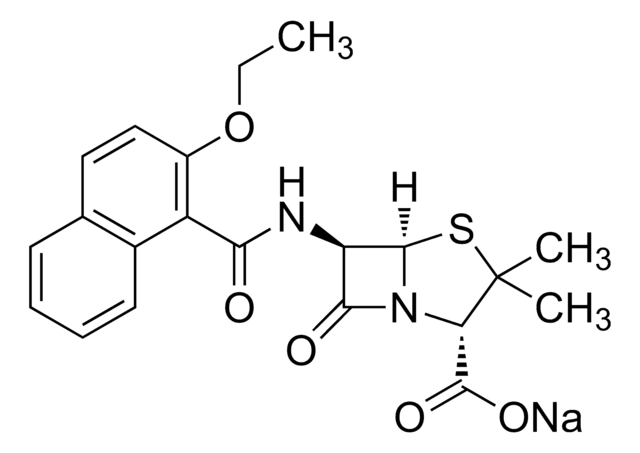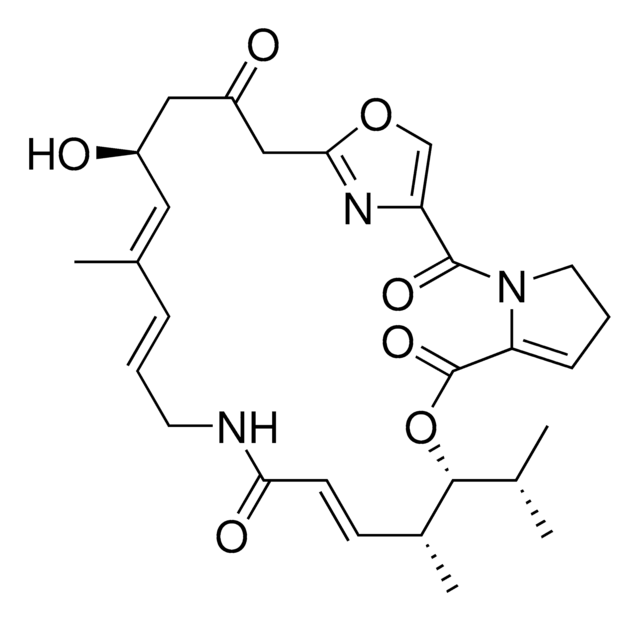About This Item
Recommended Products
form
powder
optical activity
[α]/D -85 to -80° in water (Specific rotation (dry basis))
potency
≥4100 I.U. per mg (dry basis)
storage condition
(Keep container tightly closed in a dry and well-ventilated place.)
color
white to light yellow
solubility
methanol: soluble
cation traces
heavy metals: ≤20 ppm
antibiotic activity spectrum
Gram-positive bacteria
Mode of action
protein synthesis | interferes
storage temp.
2-8°C
SMILES string
CO[C@H]1[C@H](O)CC(=O)O[C@H](C)C\C=C\C=C\[C@H](OC2CCC(C(C)O2)N(C)C)[C@H](C)C[C@H](CC=O)[C@@H]1OC3OC(C)C(OC4CC(C)(O)C(O)C(C)O4)C(C3O)N(C)C
InChI
1S/C43H74N2O14/c1-24-21-29(19-20-46)39(59-42-37(49)36(45(9)10)38(27(4)56-42)58-35-23-43(6,51)41(50)28(5)55-35)40(52-11)31(47)22-33(48)53-25(2)15-13-12-14-16-32(24)57-34-18-17-30(44(7)8)26(3)54-34/h12-14,16,20,24-32,34-42,47,49-51H,15,17-19,21-23H2,1-11H3/b13-12+,16-14+/t24-,25-,26?,27?,28?,29+,30?,31-,32+,34?,35?,36?,37?,38?,39+,40+,41?,42?,43?/m1/s1
InChI key
ACTOXUHEUCPTEW-JMRHEKERSA-N
Looking for similar products? Visit Product Comparison Guide
General description
Application
Biochem/physiol Actions
Quality
Other Notes
Storage Class Code
11 - Combustible Solids
WGK
WGK 1
Flash Point(F)
Not applicable
Flash Point(C)
Not applicable
Personal Protective Equipment
Certificates of Analysis (COA)
Search for Certificates of Analysis (COA) by entering the products Lot/Batch Number. Lot and Batch Numbers can be found on a product’s label following the words ‘Lot’ or ‘Batch’.
Already Own This Product?
Find documentation for the products that you have recently purchased in the Document Library.
Customers Also Viewed
Our team of scientists has experience in all areas of research including Life Science, Material Science, Chemical Synthesis, Chromatography, Analytical and many others.
Contact Technical Service














